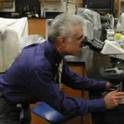
Article
Effect of platelet activating factor on leukocyte-endothelial cell interactions
Thrombosis Research
(1988)
Abstract
The proinflammatory effects of platelet activating factor (PAF) that impact upon tissue inflammation were studied in vitro using the adherence of human neutrophils to endothelium and the increase in macromolecule permeability of endothelial monolayers. PAF produced both a time- and dose-dependent increase in neutrophil -endothelial cell adhesion. The adhesion promoting properties observed were primarily due to an effect of PAF on endothelium and not on neutrophils and was independent of endothelial cell cyclooxygenase products. The PAF receptor antagonist kadsurenone inhibited the adhesion response suggesting endothelial surface PAF receptors are involved in these responses. Whereas PAF alone did not alter endothelial cell barrier properties,leukocyte activation (neutrophil an platelets) with PAF produced significant increases in 125I-albumin clearance across endothelial monolayers. These studies suggest that PAF has potent proinflammatory effects and that it can play a significant role in the endothelial response to injury.
Keywords
- PAF,
- endothelium,
- permeability,
- adhesion,
- leukocytes
Disciplines
Publication Date
July, 1988
DOI
http://dx.doi.org/10.1016/0049-3848(88)90285-X
Citation Information
Garcia, Joe G.N., Azghani, A.O., Callahan, K.S., and Johnson, A.R. 1988. Effects of platelet activating factor on leukocyte-endothelial cell interactions. Thromb. Res. 51: 83-96.
